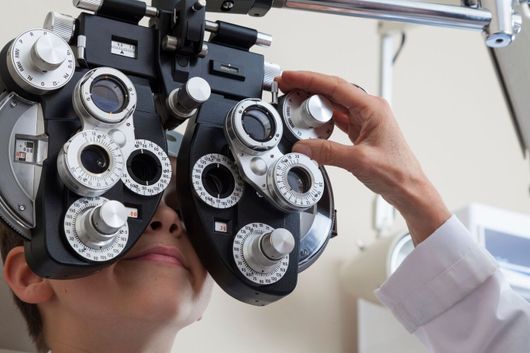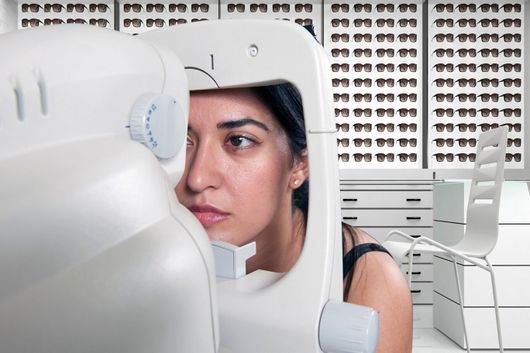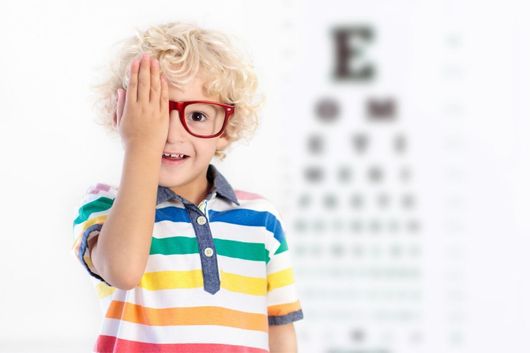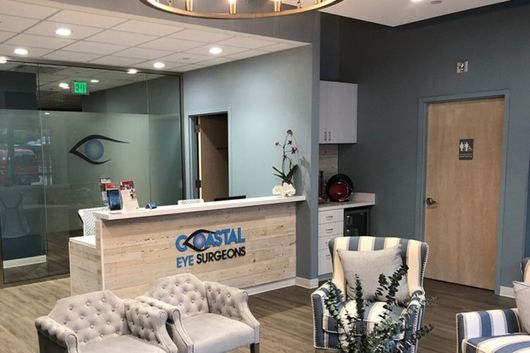
The eyes are nothing short of amazing. They’re what give us the gift of sight, making them one of the most vital organs to living a happy and fulfilling life. They work in unison with the brain to ensure we can make sense of the environment we’re surrounded by on a daily basis.
With that said, the eyes aren’t perfect by any means. Not only are they subject to degeneration as we get older, but there are a wide range of issues and eye conditions that can wreak havoc on your vision at any given point. You truly never know what could go wrong with your eyes.
That’s what makes eye health just as important as your physical health, mental health, and emotional health. Without the proper attention, prevention, and treatment, your vision can quickly go from bad to worse without hesitation. Luckily, that’s what a comprehensive eye exam is for!
So if you are wondering 'what is a comprehensive eye exam?' and how it can help you, make sure to read more below.
So, What Is A Comprehensive Eye Exam?
Comprehensive eye exams are much more in-depth than your typical routine eye exam or vision screening. Where a routine eye exam is more concerned with refractive errors in the eye, a comprehensive eye exam evaluates the overall health of the eyes -- from all angles.
A comprehensive eye exam can only be administered by a professional eye doctor or eye care specialist, also known as an ophthalmologist. They account for a visual acuity test, a cover test, depth perception, eye alignment, macular degeneration, a slit lamp exam, and much more.
Not only that, but comprehensive eye exams ensure the patient is not suffering from any eye diseases (such as glaucoma and macular degeneration), vision loss, pupil dilation, color blindness, or anything else that might impact their ability to see clearly. In the event of an issue, the eye doctor will recommend surgery, medication, glasses, or contact lenses.
Why Do You Need A Comprehensive Eye Exam?
As we learned above, a thorough comprehensive eye exam is vital to ensuring the overall health of your eyes -- no matter how old or young you are. If there’s an issue with your vision, your eye doctor will have the tools and tests necessary to detect it, diagnose it, and provide treatment.
One of the most prominent reasons why you should seriously consider these exams often throughout your life is because treatment is best-served when the issue is detected in the early stages. This gives you and the eye doctor the best chance at finding a long-term solution.
Whether or not you have a family history or your own health history of vision issues, it’s important you give your ophthalmologist an opportunity to diagnose them before they go from bad to worse. Especially today, there are a wide variety of treatment options available.
How Often Should You Schedule an Eye Exam?
At Coastal Eye Surgeons, we can’t stress the importance of a regular and professional comprehensive eye exam enough. The sooner we detect a cause for concern, the better we can treat it and hopefully avoid any serious impact on the long-term health of your eyes.
We, along with most other eye care specialists, recommend adults schedule a comprehensive eye exam at least once every two years. For anyone with a pre-existing condition or a history of vision issues, that frequency could be more often, but you’ll want to speak with your doctor.
Anyone over the age of 65 should consider scheduling an appointment every year. You should also schedule one for your child before the age of one, once between the ages of three and five years old, and annually from the ages of 7-17 years old.
Preparing for an Eye Exam
Although a comprehensive eye exam is far more thorough and inclusive when compared to a routine eye exam or vision screening, it won’t be any more intrusive. In fact, they’re generally painless and won’t cause you any amount of suffering throughout the entire length of the exam.
With that said, preparing for one is much easier than one would think. There are a few things you should come prepared with, but a majority of the work will be done by your trusted local ophthalmologist. In most cases, your eye exam will take between an hour and 90 minutes.
To ensure your eye doctor has everything they need, you should write down a list of medications you’re currently taking, any personal or family history of eye health concerns, and any symptoms you’ve noticed recently. You should also bring your current pair of glasses or contact lenses.
Of course, you’ll also want to make sure you come equipped with your health insurance cards, vision plan coverage, or both -- if you have them. The receptionist will be able to go over what’s covered and what’s not covered, especially since it differs for everyone based on the coverage.
Schedule an Appointment With Dr. Omar Shakir Today!
If you care about your eyes and want to ensure you have quality vision throughout the length of your long and healthy life, scheduling a regular comprehensive eye exam with a trusted and experienced ophthalmologist is one of the best things you can do every two years or so.
While there are plenty of eye care specialists in your local area, Dr. Omar Shakir is always ready and available to take you in as one of his patients. He has years of experience and has a deep passion for helping people just like you maintain their eye and vision health long-term.
At Coastal Eye Surgeons, he offers a state-of-the-art, boutique-style facility that’s far superior than the eye doctor visit you’re used to. With the latest technology and knowledge, he’ll not only detect any issues you’re dealing with, but will provide the necessary treatment for those issues.
When you’re ready to schedule a comprehensive eye exam with your new favorite eye doctor, contact Dr. Omar Shakir at Coastal Eye Surgeons. We can’t wait to serve you and your family!
Learn more about what procedures repair a retinal detachment or tear here.





